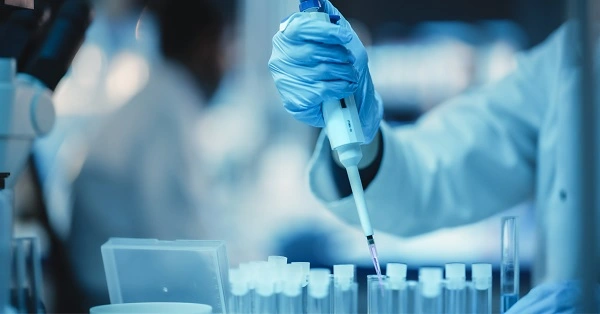Biosimilar Market in Europe Driven by Favorable Regulatory Environment

Biosimilars are biotherapeutic products similar to licensed reference biologics in terms of efficiency, safety and quality. It is not possible to produce a completely identical biological drug as the reference product is made with a unique cell line and a proprietary process. Owing to this, biosimilars can have minor differences in their clinically inactive components which are limited to the within-product variations. However, the results of the comparison as well as other information is further used for demonstrating that the biosimilar is highly similar to the reference biotherapeutic product. In Europe, the demand for biosimilars has been escalating over the span of past few years as they help in lowering the cost of the treatment for a variety of chronic diseases. According to IMARC Group, the biosimilar market in Europe reached a value of US$ 11,849.5 Million in 2023. Looking forward, IMARC Group expects the market to reach US$ 53,222.9 Million by 2032, exhibiting a CAGR of 17.6% during 2024-2032.
Request Free Sample Report: https://www.imarcgroup.com/europe-biosimilar-market/requestsample
Increasing prevalence of lifestyle diseases propelling the demand for biosimilars in Europe
In the next 5 to 10 years, several biological innovators will lose patent protection along with other intellectual property rights of their blockbuster biologics, like Eylea and Avastin. This is expected to create opportunities for biosimilar manufacturers to enter the European market. In addition, there has been a rise in the prevalence of chronic lifestyle diseases, such as cardiovascular diseases, diabetes, autoimmune diseases, etc., which is acting in favor of the growth of the market across the region. Moreover, biosimilars do not require an extensive research and development procedure as the patent of their reference product is publicly available. Owing to this, the cost incurred to produce a biosimilar is significantly lower than that of its reference product.
Insulin glargine represents the largest molecule
The biosimilar market has been segmented on the basis of molecules which include infliximab, insulin glargine, epoetin alfa, etanercept, filgrastim, somatropin, rituximab, and follitropin alfa. Amongst these, insulin glargine represents the largest segment. This drug is a recombinant human insulin analog with a long-acting, parenteral blood-glucose-lowering agent. Insulin glargine helps in regulating glucose metabolism by binding with insulin receptors on muscle and fat cells, thereby facilitating the cellular uptake of glucose which lowers blood glucose levels. It also inhibits proteolysis, and lipolysis in adipose tissue as well as enhances protein synthesis.
In-house manufacturing is the most popular type of manufacturing
On the basis of manufacturing types, the market has been categorized into in-house manufacturing and contract manufacturers. Currently, in-house manufacturing is the largest manufacturing type for biosimilars in Europe as this enables the manufacturers to monitor every step of the manufacturing process. Along with this, the companies prefer in-house manufacturing because they can develop biosimilars in their own laboratories and eliminate both shipping and delivery costs. Whereas, the growth in contract manufacturing can be attributed to various cost-saving benefits offered to biosimilar companies in terms of equipment and labor costs.
Autoimmune diseases remain the most common indication
Based on indications, the Europe biosimilar market has been segregated into auto-immune diseases, blood disorders, diabetes, oncology, growth deficiency, and female infertility. At present, auto-immune diseases exhibit a clear dominance in the market owing to the rising prevalence of these diseases in the aging population. As the annual cost of the currently available biologicals used for treating these diseases can run several thousand dollars a year, the demand for affordable biosimilars is increasing rapidly in this segment.
Italy represents the largest market for biosimilars
On a regional basis, Italy holds the majority of the biosimilar market share in Europe, followed by Germany, the United Kingdom, France, and Spain. The growth can be attributed to the cost-containment measures taken by the Italian Government which is catalyzing the uptake of biosimilars. Moreover, in 2016, Italy adopted measures that reorder and clarify the legal framework governing the use of biosimilars. These measures include the publication of a new concept paper on biosimilars by the Italian Medicines Agency (AIFA), and the adoption of specific rules on the substitutability and public procurement of biologics.
The European biosimilars industry is concentrated in nature with the presence of a few small and large manufacturers. Factors such as high fixed cost, long payback period, and significant control of top players over the market deter new entrants from foraying in this industry. Some of the key players operating in this market include Novartis, Pfizer Inc., Teva, Ratiopharm, Celltrion, Merck Sharp & Dohme, Samsung Bioepis, Eli Lilly, Boehringer Ingelheim, Hexal Ag, Accord Healthcare Ltd., Stada Arzneimittel Ag, Mylan, Apotex and Amgen.
About IMARC Group:
IMARC Group is a leading market research and consulting company that offers management strategy and market research worldwide. The company has done multiple projects in the European biosimilars industry, which has enabled the clients to successfully set up and expand their businesses. Some of the company’s offerings include:
- Market Research
- Plant setup
- Plant Expansion
- Marketing and sales
- Procurement and Distribution
- Innovation and Product Development